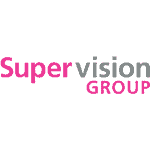Having a detailed and accurate budget is a must if you want to build a thriving, sustainable business. But how, exactly, do you create one. Here are some key tips tpo consider:
Make payment terms for clients short, but extend those with vendors as far as possible.
Making sure you send a correct invoice at the time of sale
Following up on outstanding customer payments as soon as you can
Reducing your expenses – consider finding cheaper suppliers, consolidating your debts for a better rate, and organising a periodic payment plan for larger expenses.
If you got paid for sales the instant you made them, you would never have a cash flow problem. Unfortunately, that doesn’t happen, but you can still improve your cash flow by managing your receivables. The basic idea is to improve the speed with which you turn materials and supplies into products, inventory into receivables, and receivables into cash. You can do this by-
Issue invoices promptly and follow up immediately if payments are slow in coming.
Offer discounts to customers who pay their bills rapidly.
Ask customers to make deposit payments at the time orders are taken.
Require credit checks on all new noncash customers.
Get rid of old, outdated inventory for whatever you can get.
Track accounts receivable to identify and avoid slow-paying customers.
Top-line sales growth can conceal a lot of problems-sometimes too well. When you are managing a growing company, you have to watch expenses carefully. Any time and any place you see expenses growing faster than sales, examine costs carefully to find places to cut or control them. Here are some more tips for using cash cleverly –
Take full advantage of creditor payment terms. If a payment is due in 30 days, don’t pay it in 15 days.
Use online electronic funds transfer to make payments on the last day they are due. You will remain current with suppliers while retaining use of your funds as long as possible.
Communicate with your suppliers so they know your financial situation. If you ever need to delay a payment, you’ll need their trust and understanding.
Don’t always focus on the lowest price when choosing suppliers. Sometimes more flexible payment terms can improve your cash flow more than a bargain-basement price.
Find the right inventory balance if you’re a goods-based business
The products or services with the highest gross profit margin are the most important to your business. Once you have identified your most profitable products or services you should concentrate on these. Make a list of those goods you buy that aren’t moving at the same pace as your other products. They tie up a lot of cash and could hurt your cash flow.
Holding inventory is unavoidable, but instead of buying more of what doesn’t sell, get rid of it, even if you need to sell it at a discount. It’s hard to walk away from products you fall in love with, hoping that someday you’ll magically see heightened demand, but that almost never happens. Be objective, not emotional.
Conversely, if you fail to have enough on-hand inventory then you risk stock-outs that lead to lost sales, reduced customer satisfaction and the potential loss of future sales. In either of these situations, revenue and profitability can decrease and cashflow will be affected so you need to achieve good inventory control to get the balance right.
Reduce overheads
In business, one adage has proven to be true time and time again: “You need to spend money to make money.” But there also comes a point when your expenses far outweigh your income and that’s a recipe for disaster.
For many businesses, overhead expenses have a way of creeping up over time. Regular review of your overhead expenses is a simple and effective way of improving your net profit. Benchmarking your business to similar businesses in your industry may highlight areas for improvement.
Carefully manage your operating expenses, these expenses are necessary to run your business or are incurred in your day-to-day operations. This includes expenses related to producing, selling, and marketing your products or services. It also includes materials, labour, equipment, manufacturing-related utilities, packaging and other costs.
Also don’t forget your overhead costs, they are business-related expenses. However, this term mostly refers to ongoing costs for general business functions, or costs that you would still have to pay even if you don’t produce or sell anything for a period of time. This includes things like rent, accounting, software, insurance, salaries for management and general utilities.
Manage your business strategy more effectively with the help of an accountant
While an accountant might seem like an unnecessary expense in addition to your overhead costs, hiring a professional to handle your finances is one of the best ways to cut costs in the long run. Not only will you improve accuracy and avoid costly financial mistakes, but your accountant can also help in other areas such as identifying potential tax deductions that could increase your take-home amount.





